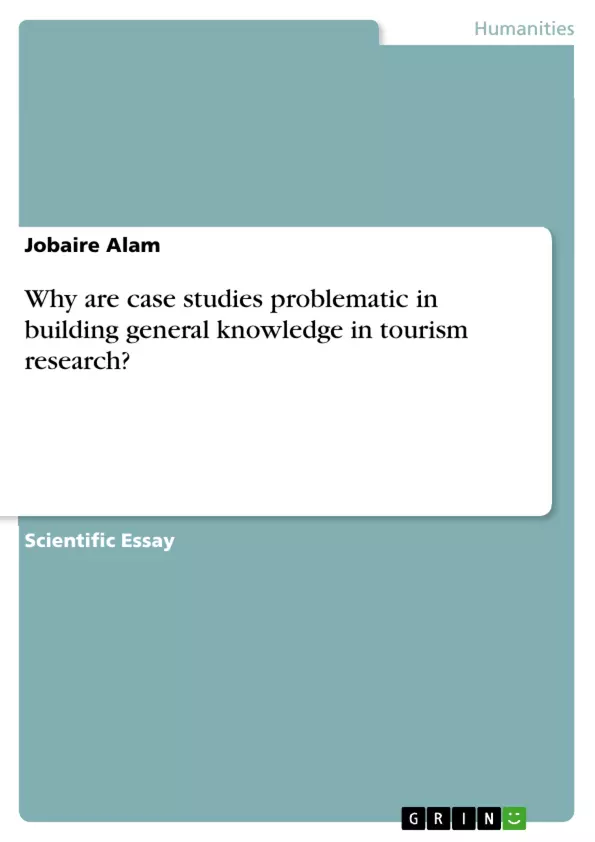In order to find out a solution of a problem, the scientific researchers use various empirical methods, therefore, the case study is one of those methods. But on the other hand, McLeod revealed clearly that case study is not a method itself. So as a learner if I would like to understand the definition of the case study then as a very realizable explanation I can present here as follows.
“Case studies are basically in-depth investigation of single person, group, event, or community. Typically data are gathered from a variety of sources and by using several different methods (e.g. observations & interviews). The case study research method originated in clinical medicine (the case history, i.e. the patient’s personal history).
Inhaltsverzeichnis (Table of Contents)
- Defining case study
- Strengths of case study
- Weaknesses of case study
Zielsetzung und Themenschwerpunkte (Objectives and Key Themes)
This text aims to critically assess the strengths and limitations of case studies in tourism research. It explores the methodological approach of case studies, its advantages, and disadvantages, with a focus on its application in building general knowledge.
- Definition and characteristics of case studies
- Strengths of case studies in research
- Weaknesses and limitations of case studies
- The use of case studies in tourism research
- Alternative research methods and their comparison to case studies
Zusammenfassung der Kapitel (Chapter Summaries)
- Defining case study: This chapter provides a comprehensive definition of case study methodology, highlighting its roots in clinical medicine and its application in various fields, including psychology and tourism. It discusses the various types of case studies, including exploratory, descriptive, and instrumental, and the different data collection and analysis techniques employed.
- Strengths of case study: This section examines the advantages of employing case study research. It emphasizes its ability to provide detailed, rich qualitative information, generate new ideas, and facilitate replication. The chapter also highlights its suitability for investigating complex phenomena and impractical situations.
Schlüsselwörter (Keywords)
The text primarily focuses on case study methodology, its application in tourism research, and its strengths and limitations. Key terms include case study, qualitative research, data collection, data analysis, tourism, generalizability, replication, and ethical considerations.
Frequently Asked Questions
What is a case study in tourism research?
A case study is an in-depth investigation of a single person, group, event, or community, using various data sources like interviews and observations to understand complex phenomena.
What are the main strengths of using case studies?
They provide rich, detailed qualitative data, allow for the investigation of complex or rare situations, and can generate new ideas and hypotheses for further research.
Why are case studies considered problematic for building general knowledge?
The main issue is generalizability; because the research focuses on a single "case," it is difficult to apply the findings to a broader population or different contexts.
What are the different types of case studies?
Research typically distinguishes between exploratory (to find new questions), descriptive (to document a situation), and instrumental (to understand a broader issue) case studies.
Where did the case study method originate?
The method originated in clinical medicine as "case histories," focusing on a patient's personal and medical history to diagnose and treat conditions.
- Quote paper
- Jobaire Alam (Author), 2015, Why are case studies problematic in building general knowledge in tourism research?, Munich, GRIN Verlag, https://www.grin.com/document/413351



